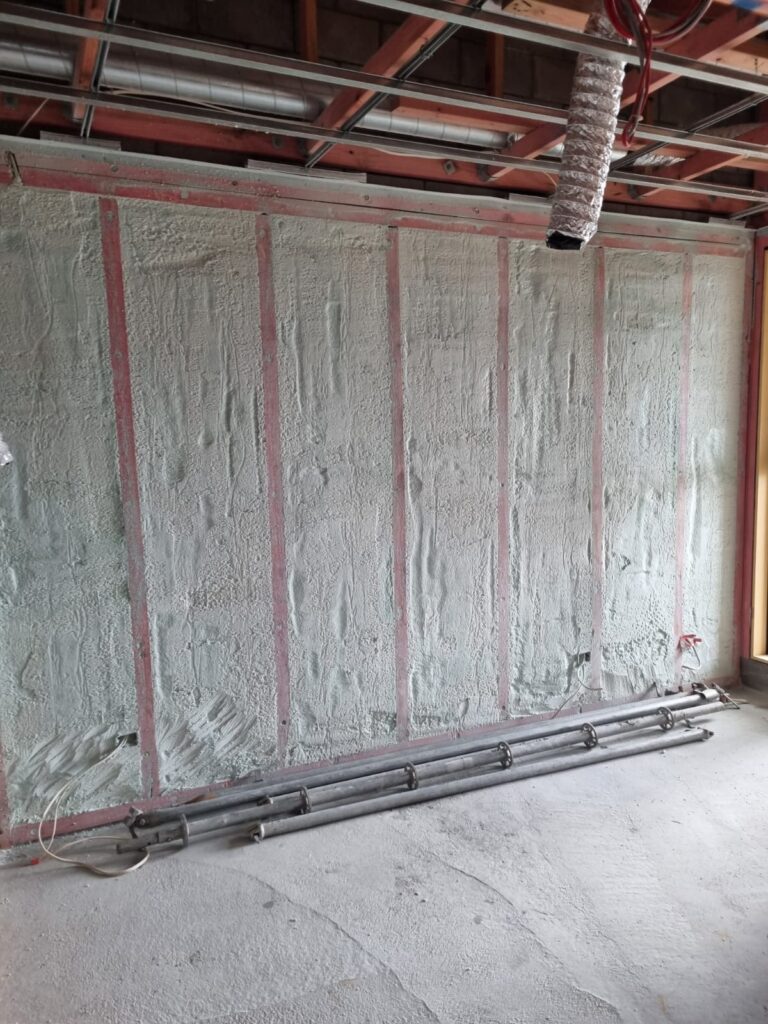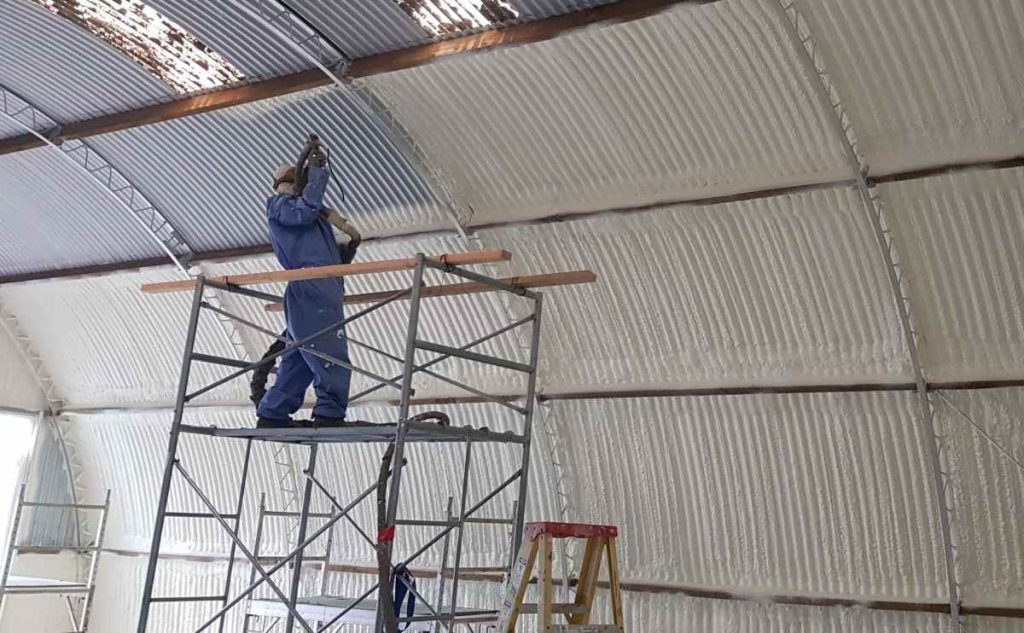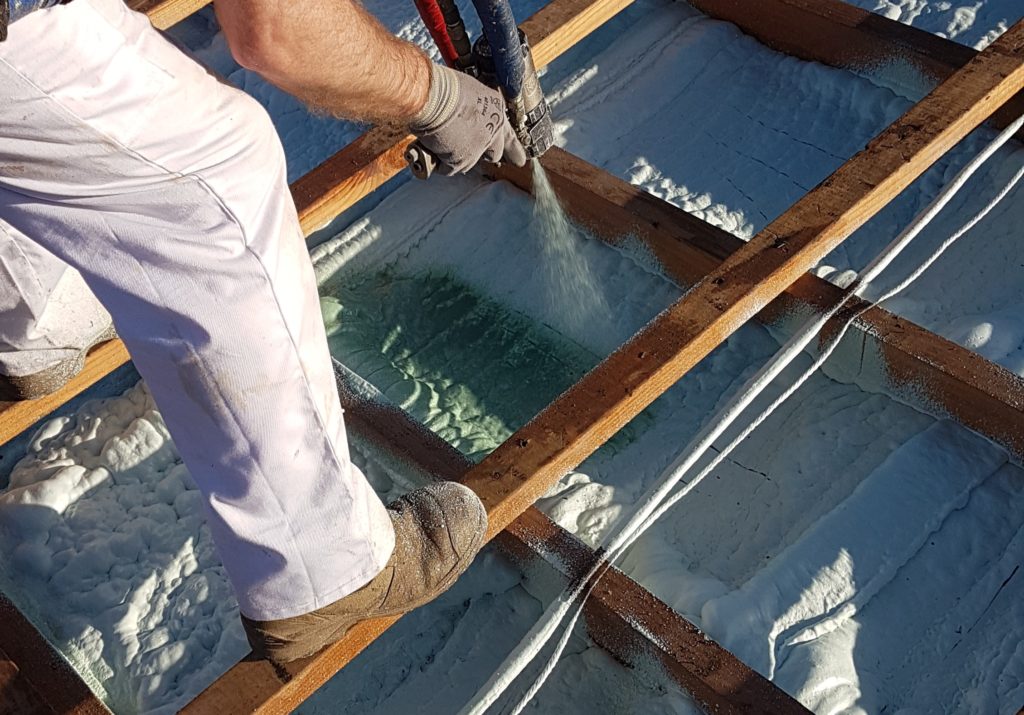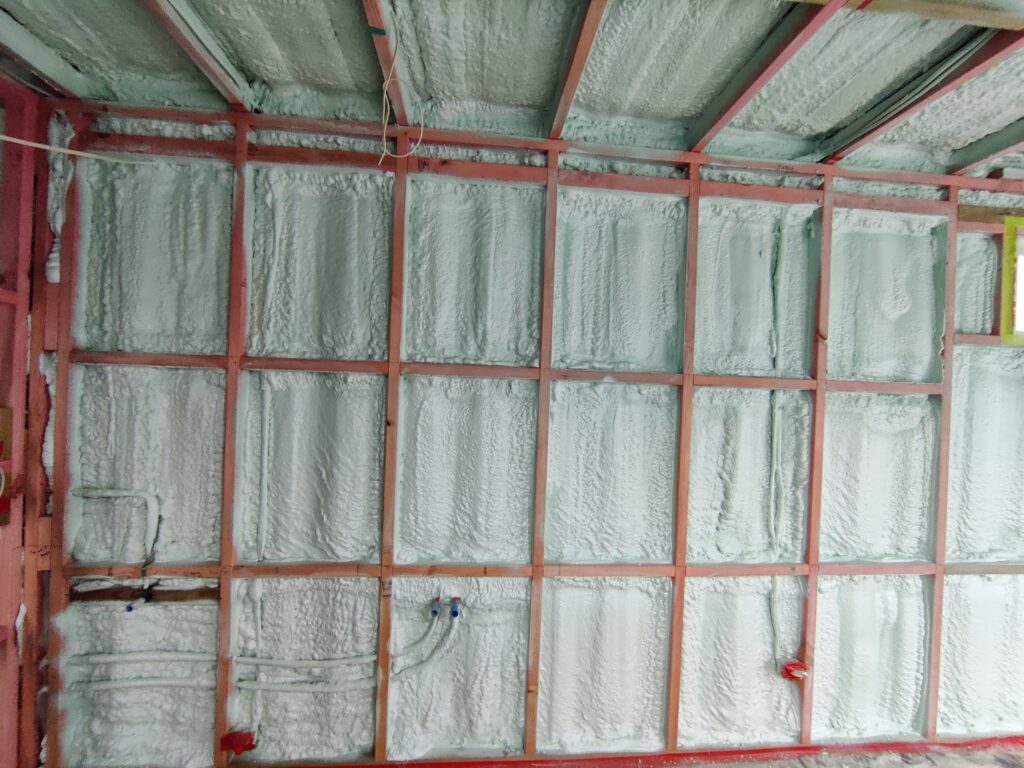We often recommend closed-cell spray foam products for situations requiring high insulation or a vapour barrier. It offers the most efficient insulation available for most uses – with the potential to significantly reduce heating/cooling costs. This type of foam comprises a 90% closed-cell structure, reducing the risk of water absorption or transmission.
Closed-cell Polyurethane Foam
Our Service
At NZAS, we know all about top-quality polyurethane foam solutions. Whatever your project, we’ll find the right product to get your insulation sorted. Contact us today.
Polyurethane Foam Products
Polyurethane spray foam insulation is a fantastic solution for all your insulation needs. Its unique properties make it a versatile material suitable for various industries, including construction, packaging, and automotive. With our closed-cell polyurethane foam and open-cell polyurethane foam options, we offer a range of spray foam solutions to cater to different requirements.
Product Description: Closed-cell Polyurethane Foam




Closed-Cell Polyurethane Foam Insulation: FAQs
Closed-cell polyurethane foam is a high-density, rigid foam with a 90% closed-cell structure. It offers excellent insulation properties with an R-value of 1.1K·m²/W per 25mm, making it ideal for reducing heating and cooling costs. Additionally, it acts as a vapor barrier, reducing the risk of water absorption or transmission, making it suitable for both residential and commercial applications.
Closed-cell spray foam insulation is highly effective for commercial facilities, especially cold storage. It provides a vapor barrier that prevents condensation, helping maintain stable temperature and moisture levels. This can enhance energy efficiency and overall performance of the facility.
Open-cell foam is less dense than closed-cell foam and provides better noise insulation. It has an R-value of 0.78K·m²/W per 25mm and expands significantly upon application, making it ideal for filling cavities and sealing cracks. However, it may allow water vapor to pass through over time, so it is not recommended for damp areas.
Open-cell spray foam insulation is commonly used for noise insulation, cavity filling, and sealing cracks and crevices. It is a cost-effective option for interior walls, ceilings, and areas where noise reduction is a priority.
NZAS provides a complete range of polyurethane foam solutions, including low-density open-cell foams, closed-cell foams, high-density foams for structural strength, and soft and flexible foams for various applications, such as padding or film set props. All our products are certified, ensuring compliance with New Zealand building standards.
NZAS offers certified, high-quality polyurethane foam insulation with expertise in various applications, from residential to commercial and industrial. Our products are durable, energy-efficient, and provide excellent insulation, noise reduction, and structural integrity. We tailor our solutions to meet your specific needs, ensuring the best possible results.
Polyurethane foam, often referred to as PU foam, is a versatile material created by combining polyol and isocyanate. It comes in various densities, suitable for insulation, cushioning, structural support, and more. Its key benefits include excellent insulation and durability, making it a popular choice across many industries.
Polyurethane foam is widely used in insulation for buildings, cushioning for packaging and furniture, soundproofing in the automotive industry, structural support in construction, and cushioning in athletic footwear. Its versatility makes it ideal for many different applications.
Closed-cell foam is denser, provides higher R-value insulation, and acts as a moisture barrier, making it suitable for areas where moisture resistance is crucial. Open-cell foam is softer, less dense, offers sound dampening, and is a more cost-effective option for noise reduction applications. The choice depends on your specific insulation needs.
The choice between closed-cell and open-cell foam depends on your project’s requirements. If moisture resistance and high R-value are priorities, closed-cell foam is ideal. For sound reduction or a more economical option, open-cell foam is better. Consult the NZAS team to get expert advice on the best solution for your needs.
NZAS has extensive experience and certification in installing high-quality polyurethane spray foam insulation. We ensure compliance with building standards, provide tailored solutions, and offer a range of products to meet diverse insulation needs, making us a trusted partner for your project.

